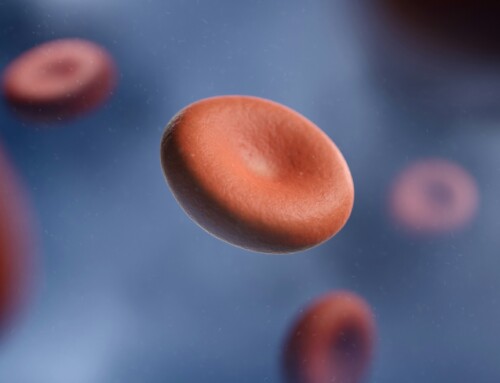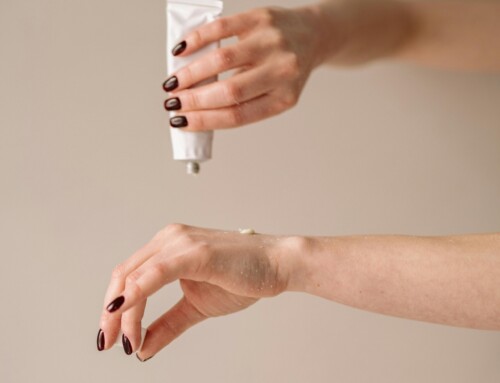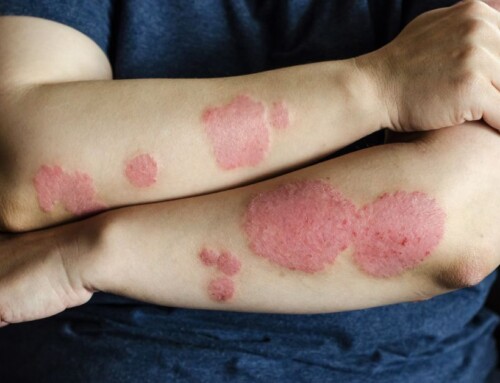Share
Author
Kohei Iguchi
Share
Eczema Unmasked: Understanding “Triggers” and “Causes” for Lasting Relief

Dealing with eczema can feel like a constant battle. Those pesky flare-ups seem to pop up out of nowhere, leaving your skin itchy, red, and irritated. But what if we told you there’s a powerful way to understand why your eczema behaves the way it does, and how to find lasting relief?
Here at Waterwell Clinic, we believe in digging deeper. When it comes to tackling eczema, we like to break down the potential culprits into two super important categories: the Triggers (the “What”) and the Causes (the “Why”). Let’s dive in!
The “What”: Identifying Your Eczema Speed Bumps
Think of your “triggers” as those specific things that send your eczema into a frenzy. We’re talking about allergens, irritants, and even stresses that kick off a noticeable reaction. For instance, do your symptoms flare up every time you indulge in prawns? Or perhaps a cozy wool sweater leaves you scratching? These are your “whats” – the specific factors that trigger an eczema response each time you’re exposed to them.
Spotting these triggers early on is absolutely crucial! Imagine your journey to recovery as a smooth road. Every trigger you encounter is like a speed bump. The more speed bumps you hit, the more ups and downs you’ll experience, and the slower your progress will be. Basically, the more “bumps” you can remove from your path, the smoother your ride will be, and the quicker you’ll reach that supple, clear skin destination! Many people experience significant improvement just by removing these triggers from their diet or environment – it’s a fantastic first step!
Is Avoiding Triggers Forever the Answer?
Now, here’s a big question: is the ultimate goal simply to avoid certain foods and environmental substances for the rest of your life? For some, especially those who only react to one or two easily avoidable things, it might be a manageable task. But let’s be real, for many eczema sufferers, this isn’t always the case. Often, there are multiple triggers – both food-related and environmental – which can be incredibly challenging to dodge indefinitely.
The “Why”: Unlocking the Root of the Problem
This is where the magic happens, in our humble opinion! The more important aspect to consider is the “Why” – the underlying reason you’re so reactive to these triggers in the first place. This is where you pause and ask yourself, “Why am I so sensitive to these things, when other people seem perfectly fine?”
Asking this question opens the door to understanding the root cause of your eczema. It’s often tied to a deeper, more chronic imbalance within your internal systems, particularly your immune system. By addressing the problem at its core, you’re essentially rebalancing your body from the inside out. This, in turn, can significantly improve your tolerance to allergens and irritants, meaning you won’t have to constantly avoid them for the rest of your life!
This is the ultimate aim of a holistic approach like naturopathic treatment – to help your body achieve a state of natural harmony. Optimizing your overall body function doesn’t just improve your eczema; it can also facilitate healing for other ailments and even prevent the development of other illnesses linked to chronic inflammation. How amazing is that?!
Common Eczema Culprits: A Sneak Peek!
To give you a head start, here’s a look at some of the common triggers and underlying causes we’ll be exploring in depth in future posts:
The “What” (Triggers – the things that kick off a flare-up):
- Foods: Specific ingredients that your body reacts to. This might include common allergens like dairy, eggs, tree nuts, seafood, wheat or gluten, and soy. You may also be intolerant to histamine foods, salicylates, oxalates, lectins, sulfites, and FODMAPs.
- Environmental Allergens: Think pollen, dust mites, pet dander, cockroaches, and moulds. You may also be sensitive to
- Toxins: Things we encounter in our daily lives, which includes moulds, cigarette smoke and vaping.
- Other Irritants: From rough fabrics, laundry powders, perfumes, wool, latex, metals, insect bites, cosmetics to sandpits, sweat, drool, and even some creams!
A Handy Tip: Keep a Symptom Diary!
The best way to identify your triggers is by keeping a close monitor of your symptoms through a symptom diary! It’s the cheapest and most effective way to figure out what’s causing your symptoms to fluctuate.
Make a table where you can make note of:
- The date and time of symptom onset
- What you ate, were exposed to, or experienced (e.g ice cream, visiting a friend who has a cat, or stressing out about an upcoming exam)
- Description of symptoms (not just your skin, but perhaps your bowel movements, headache or fatigue as well)
Record the above every time you have a flare up (up to 12 hours before the symptoms appeared), and eventually you may be able to see a pattern. For example, you might notice that every time you have chocolate you get super itchy at night!
If it’s too hard to keep a diary, or you simply have no idea what’s triggering your symptoms even after keeping a diary for months, you could consider allergy or intolerance tests. We would usually recommend specific IgE blood test for allergies, and IgG or ALCAT test for intolerances and general sensitivities.
The “Why” (Causes – the deeper imbalances that make you reactive):
- Genetics: Sometimes, it’s just in our DNA. Do your parents or other family members have any allergy conditions like eczema, asthma or hay fever?
- Gut Health: The integrity and balance of the microbes in your gut play a huge role. Our gut is the center-point of our entire body system, and is deeply connected to our immune system, hormonal system, microbial balance on the skin, nutrient uptake, toxin elimination, metabolism and more!
- Immune Hyperactivity: An overactive immune system is at the core of your eczema condition. Understanding why your immune is hyperactive, and calming it down, is the number one priority in healing your eczema.
- Skin Integrity & Microbiome: The health of your skin barrier and the tiny organisms living on it, just like our gut, and the health of this barrier will determine your susceptibility to allergens, irritants, and inflammatory response.
- Hormonal Imbalance: Hormones can influence everything! For example, lack of estrogen leading up to your period can worsen eczema and acne.
- Liver Function: Your liver plays a key role in detoxification, and when key detoxification pathways like the liver, gut and urinary system aren’t working well, toxins can push through your other elimination channel – Your Skin!
- Nutrient Deficiencies: Lacking essential vitamins and minerals like iron, Vitamin D, A, B6, B12, C, Zinc, and essential fatty acids can encourage eczema development.
- Toxins (internal): Accumulation of toxins from previous or continuous exposure, such as heavy metals (e.g. lead, asbestos and mercury – often from amalgam fillings), petrol fumes, cigarette smoke and vapes, herbicides or pesticides, and microplastics. These toxins can cause an array of dysfunction in the body, including hormonal balance, immune response and gut health.
- Stress & Emotional Trauma: Our minds and bodies are deeply connected, and fight/flight response can dramatically change the way your body functions, forgetting about hormonal balance, gut function, immune function and growth and repair – all the things your body doesn’t prioritize when running away from a tiger!
Unlike the triggers, identifying the causes of your eczema, and treating, can be a complex and difficult task. This is where you’d benefit from seeing a practitioner who can guide you through the appropriate steps through your healing journey!
Stay tuned for more blog posts where we dive into each of these fascinating factors in more detail! Understanding your “what” and your “why” is the first powerful step on your journey to calmer, happier skin!



